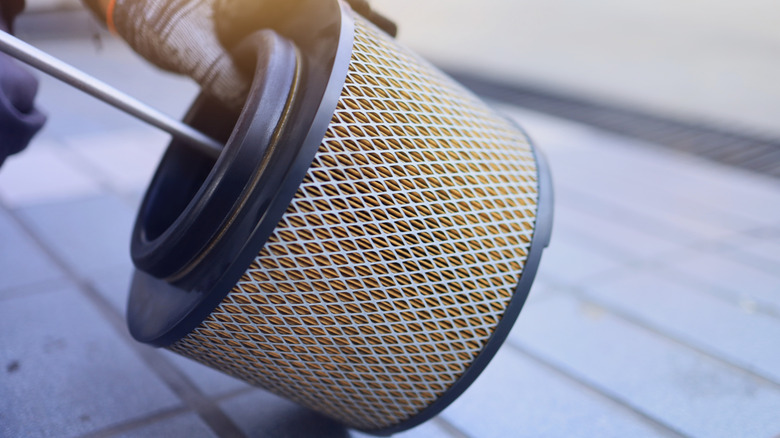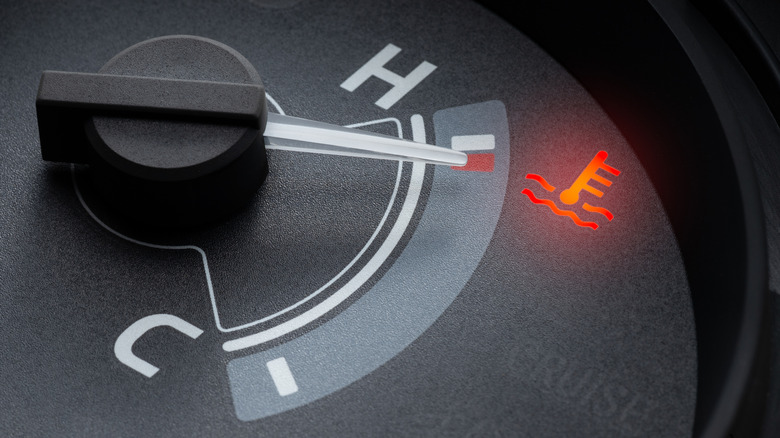
Diesel engines typically have beefier, more robust cooling components to keep the motor cool in varying conditions. Modern diesels operate at a higher compression ratio, which makes their combustion chambers
hotter than in a gas engine. It's why overheating is a massive no-no for your hardworking diesel car or truck, and it's critical to get to the root of the matter once you notice the temperature gauge begins rising abruptly or abnormally.
The trouble is, diesel engines can get too hot for many reasons, so it helps to know a thing or two under the hood at the first sign of overheating. Although a smoking hot engine typically points to coolant issues or a bad radiator, a clogged air filter is one of the most overlooked reasons why a diesel may overheat. The air filter does precisely what it sounds like -- it removes dust, dirt, sand, and other debris from the intake air, ensuring only clean air enters the combustion chamber.
However, the air filter gets clogged over time, as all filters do. When it does, it will cause a few noticeable symptoms, like black smoke from the exhaust, mediocre fuel economy, sluggish performance, engine stalling (in severe cases), or a mysteriously illuminated check engine light. A clogged air filter results in a reduced volume of air entering the engine. When this happens, it will burn more fuel than air, and this rich fuel-to-air mixture will raise the combustion temperatures, which is usually enough to overheat the engine, especially when towing, carrying heavy loads, or climbing steep gradients.
Read more: These Are The Best Engines Of All Time, According To You
Possible Causes Of An Overheating Diesel Engine

Besides helping keep your diesel engine cool and running at peak condition, replacing the air filter at the prescribed intervals will contribute significantly to the fuel economy, torquey performance, and longevity of your diesel engine. Make it a habit to inspect the air filter after every oil change and replace the filter element every 9,000 to 12,000 miles. Better yet, refer to the owner's manual to know when exactly to throw away the old filter.
Meanwhile, insufficient coolant levels can overheat a diesel engine. Coolant loss can stem from leaking hoses, a bad radiator, or neglect. A faulty cooling fan or a bad thermostat can also cause your diesel to overheat, so it's best to check those if the engine is persistently running hot despite having normal coolant levels. Remember that running low on coolant might damage the water pump in the long run due to inadequate lubrication, since coolant actively lubricates as it cools.
Whatever the case, an overheating diesel is a cause for concern. Slow the vehicle down and pull over if you notice the temperature needle spiking towards the hot level. Since the rising temperatures can be due to many factors, it's best to turn off the engine immediately to prevent further damage. At this point, it's best to call for help or a tow to the nearest dealership or garage.
Want more like this? Join the Jalopnik newsletter to get the latest auto news sent straight to your inbox...
Read the original article on Jalopnik.











